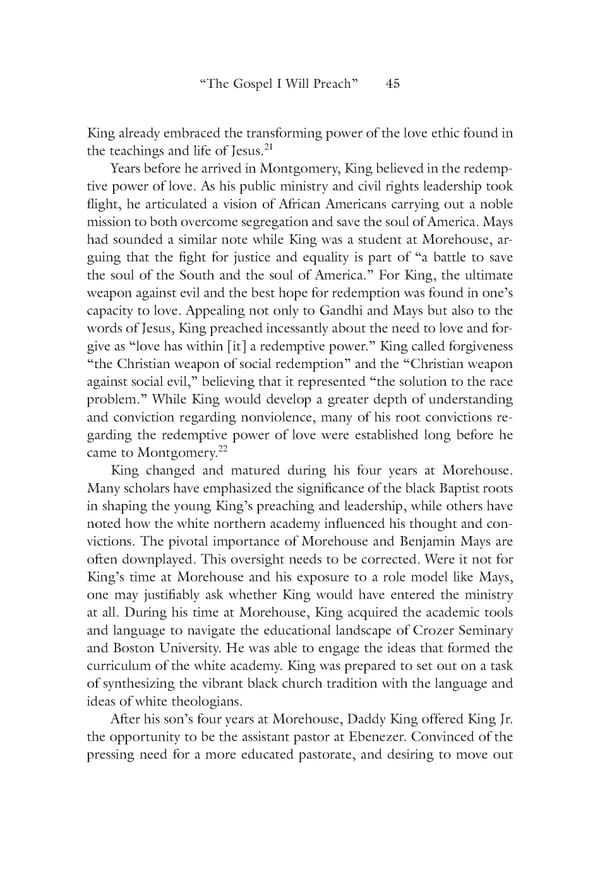“The Gospel I Will Preach” 45 King already embraced the transforming power of the love ethic found in 21 the teachings and life of Jesus. Years before he arrived in Montgomery, King believed in the redemp- tive power of love. As his public ministry and civil rights leadership took flight, he articulated a vision of African Americans carrying out a noble mission to both overcome segregation and save the soul of America. Mays had sounded a similar note while King was a student at Morehouse, ar- guing that the fight for justice and equality is part of “a battle to save the soul of the South and the soul of America.” For King, the ultimate weapon against evil and the best hope for redemption was found in one’s capacity to love. Appealing not only to Gandhi and Mays but also to the words of Jesus, King preached incessantly about the need to love and for- give as “love has within [it] a redemptive power.” King called forgiveness “the Christian weapon of social redemption” and the “Christian weapon against social evil,” believing that it represented “the solution to the race problem.” While King would develop a greater depth of understanding and conviction regarding nonviolence, many of his root convictions re- garding the redemptive power of love were established long before he 22 came to Montgomery. King changed and matured during his four years at Morehouse. Many scholars have emphasized the significance of the black Baptist roots in shaping the young King’s preaching and leadership, while others have noted how the white northern academy influenced his thought and con- victions. The pivotal importance of Morehouse and Benjamin Mays are often downplayed. This oversight needs to be corrected. Were it not for King’s time at Morehouse and his exposure to a role model like Mays, one may justifiably ask whether King would have entered the ministry at all. During his time at Morehouse, King acquired the academic tools and language to navigate the educational landscape of Crozer Seminary and Boston University. He was able to engage the ideas that formed the curriculum of the white academy. King was prepared to set out on a task of synthesizing the vibrant black church tradition with the language and ideas of white theologians. After his son’s four years at Morehouse, Daddy King offered King Jr. the opportunity to be the assistant pastor at Ebenezer. Convinced of the pressing need for a more educated pastorate, and desiring to move out
 Becoming King: Martin Luther King Jr. Page 65 Page 67
Becoming King: Martin Luther King Jr. Page 65 Page 67